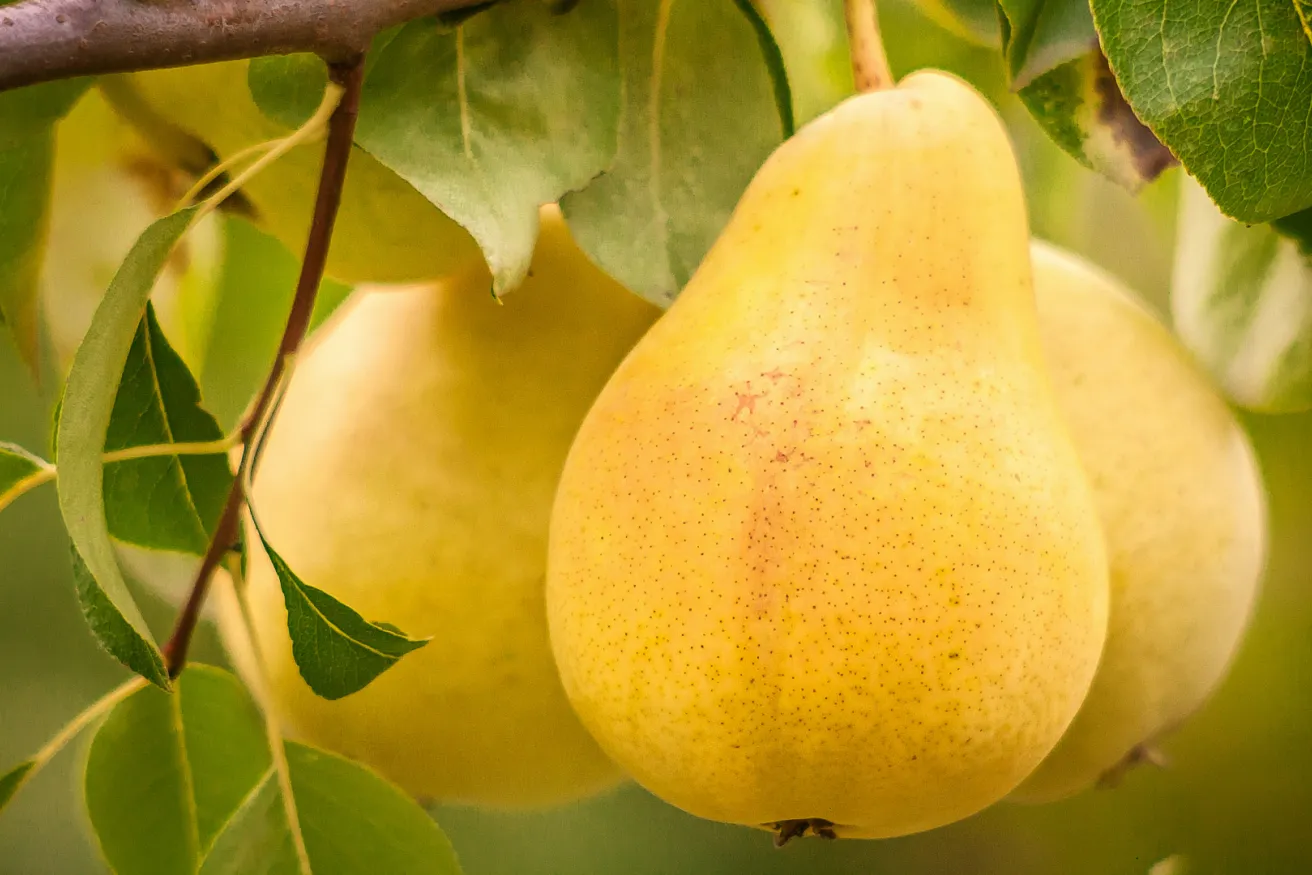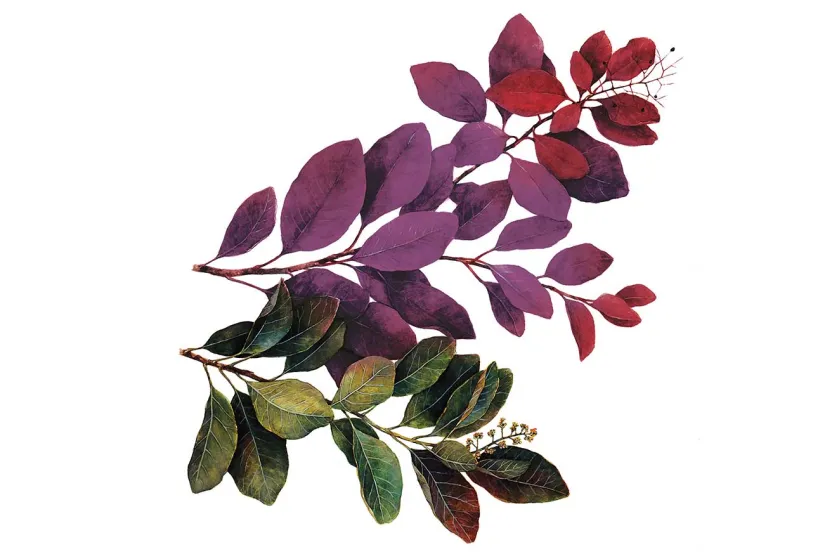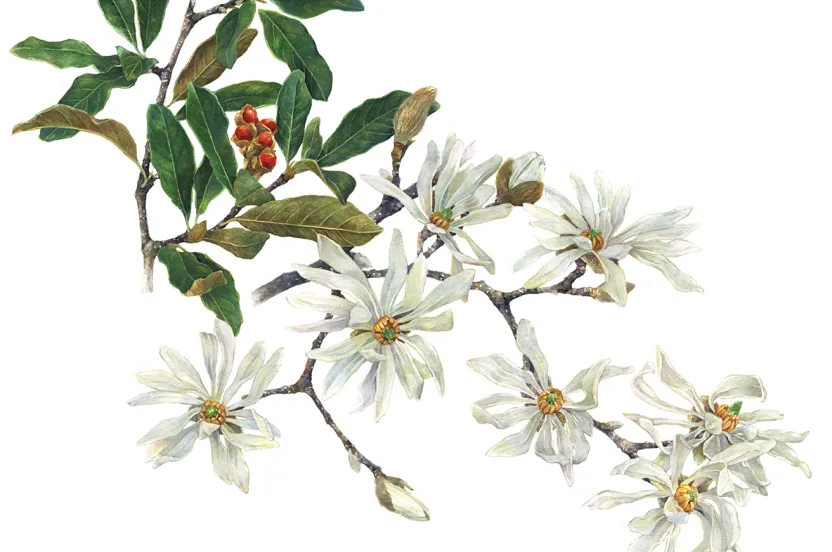Now live: The 2025 Canopy Report. Learn how Americans see trees. GET THE REPORT
Pyrus communis ‘Bartlett’
What’s golden yellow and bell shaped on the outside and sweet and juicy on the inside? America’s favorite pear, the Bartlett pear! This long-lived pear is so popular that it’s even been called “the standard for pears.” The pear has always been the fruit of choice by royals, Homer is even known to have called it “a gift of the gods.” That’s a lot of hype for one piece of fruit to live up to.
While the Bartlett is among the most popular pears in this country, its roots are found elsewhere. The tree was first discovered in Aldermaston, Berkshire, England in the late 1700’s by John Stair. Stair took some cuttings of the tree to his nurseryman Williams who went on to commercialize the pear and named it after himself—the pear is commonly called the Williams or the Stair-Williams in Europe.
The pear made its way to America in the 1790s and was first planted on the property of Thomas Brewer in Roxbury, Massachusetts. Years later his estate was bought by Enoch Bartlett, who didn’t know the European name for the tree and permitted the pear to go out under his own name.
Whether you call it the Bartlett pear, the Stair pear or the Williams, one thing is certain, there is consensus that this particular pear is favored above others—close to 15,000 pear cultivars to be exact. In fact, it represents nearly 75% of all pear production in the U.S. and Canada. So what makes this pear so unique?
The most obvious answer is the sweet taste of the pear, offering a mild tartness and smooth flesh. Bartlett pear trees are known for bearing fruit long into old age, sometimes more than 100 years. In the spring the tree blooms white showy flowers and glossy green leaves, and in the fall the fruit starts to ripen. There are also red Bartlett pear varieties, which other than a slight difference in flavor, vary very little from the common golden yellow. It’s fast growing and only grows up to 20 feet, so it makes for a good landscape tree. Like many fruits, the Bartlett tastes great whether eating fresh or for canning and preserves.
Do you have a favorite pear variety? Let us know below!




